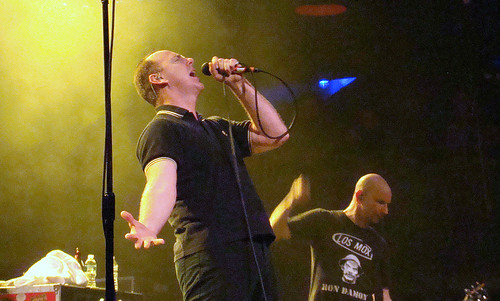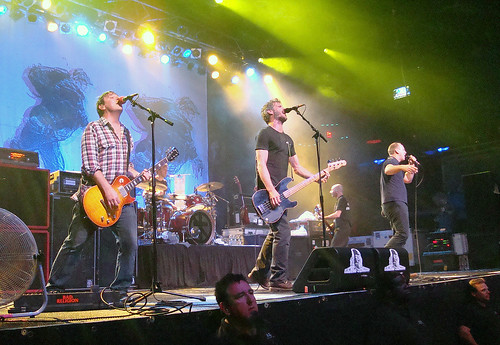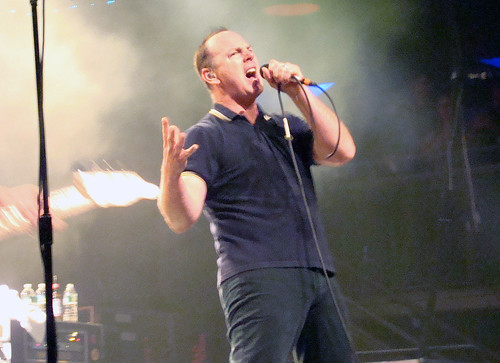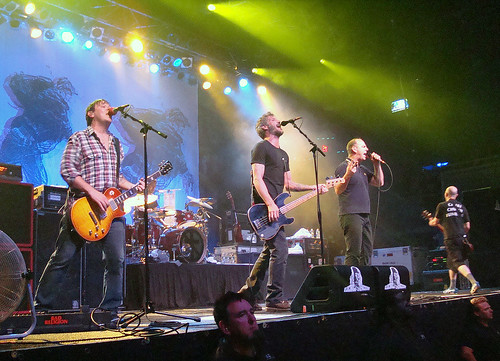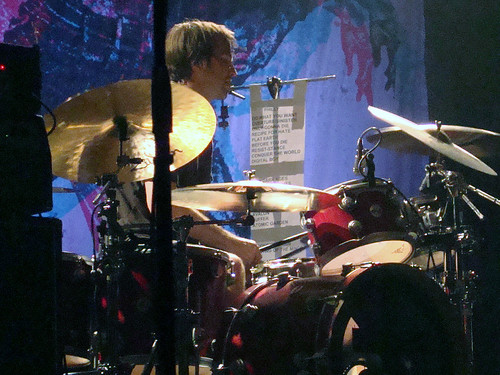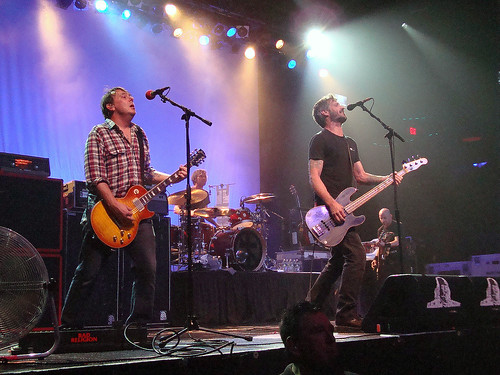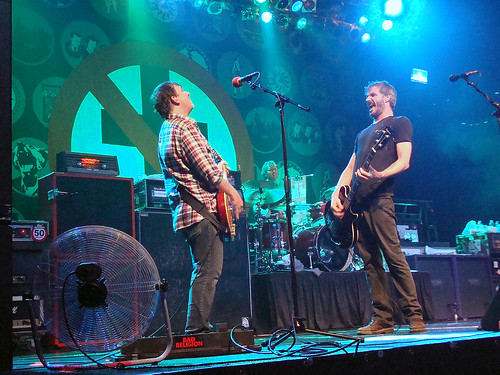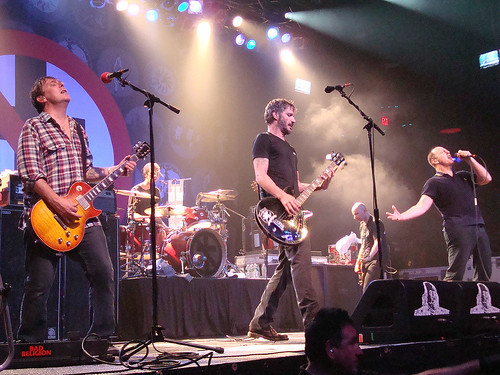ARCHIVES: Punk legends Bad Religion aren’t reliant on their past as they find ‘True North’
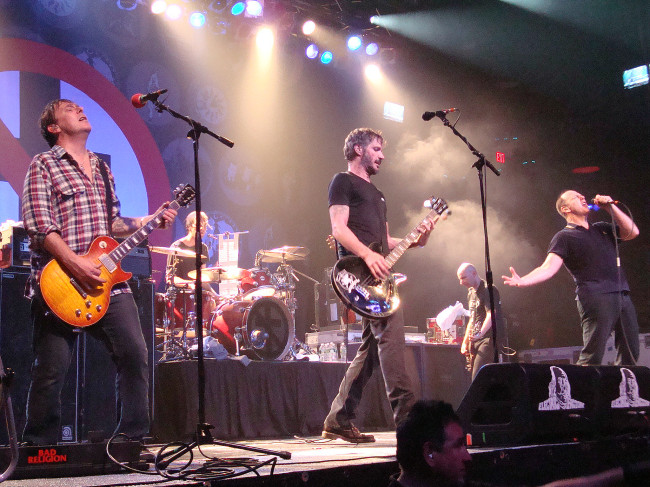
Any band with over three decades of history will automatically receive the “legendary” label, but Bad Religion has earned it.
What other punk group has not only survived this long, but also stayed as active and prolific as these Los Angeles natives? Touring in support of their 16th studio record, “True North,” the five-piece (not counting non-touring member Brett Gurewitz) proved just how well their new material blends with the old at the Electric Factory in Philadelphia on Sunday, March 24.
Openers Polar Bear Club of upstate New York showed off their youthful energy with a simple, yet rousing set of post-hardcore tunes that live up to song titles like “Killin’ It.” Skinny, spectacled frontman Jimmy Stadt easily engaged the all-ages crowd. The Bronx, however, did not appear as genuine overall.
Filling in for Against Me! when they dropped off the tour weeks ago, the Los Angeles hardcore punks sounded great musically, embracing a surprisingly classic rock sound and head-bobbing beat, but vocalist Matt Caughthran’s stage presence, which felt more “gangsta rapper” than hardened punk with his constant cursing and shoutouts to various locations and random musicians, detracted from an otherwise exciting performance. He did make up for this, though, by jumping into the pit for The Bronx’s last two songs to stir up the already lively crowd, much to the chagrin of security guards who were forced to hold his microphone cord over their heads the entire time.
Bad Religion did not need to rely on such stunts to whip up a frenzy, bursting onstage with “Past Is Dead,” a new song with a title that’s ironic when followed by “We’re Only Gonna Die,” a set staple since their 1982 debut album “How Could Hell Be Any Worse?” “New Dark Ages” and “True North” were next, but they dug right back into the catalog for “Anesthesia,” “Generator,” “I Want to Conquer the World,” and “21st Century (Digital Boy),” all sounding as crisp as the days they were recorded in the ‘80s and ‘90s.
One thing that has only bolstered BR’s staying power is this dedication to clear, quality sound. Every one of singer Greg Graffin’s words is annunciated and understood over the memorable hooks and three-part harmonies perfectly, a stark contrast to modern punk and hardcore’s reliance on raspy, screeching vocals and guttural growls. These words are biting enough.
The mix of old and new continued throughout the evening, jumping from their latest single, “Fuck You,” to “Recipe for Hate” and “Suffer” and back again for “Robin Hood in Reverse.” Graffin commented that “Fuck You” was a song “we should have written 30 years ago,” but the ease through which they navigated their past and present showed just how timeless their work is – their rebellious social commentary is just as relevant now as it was then. What that says about the state of this country is a discussion for another time.
The group took several pauses to crack jokes and talk to the audience, keeping things light despite the heaviness behind many of the songs’ messages, yet they still managed to play 30 tunes, which felt like sing-a-longs due to the sheer number of fans who knew every lyric. Faces in the crowd lit up again and again as BR blustered through “Sanity,” “You,” “Do What You Want,” “Dearly Beloved,” “Epiphany,” “Against the Grain,” “Them and Us,” “A Walk,” and “American Jesus,” among others, with Graffin only pausing to point out the audience’s fondness for nostalgia.
“Sorrow,” from 2002’s “The Process of Belief,” likely sparked that feeling for many, as the radio hit brought in many new fans at the time, though the four-song encore of “Fuck Armageddon… This Is Hell,” “Vanity,” “Infected,” and “Dept. of False Hope” made it clear that they could still play – and end on – more songs from their new album than any other and still please fans of all ages and expectations.
Not many 33-year-old bands can say that, if any at all.


